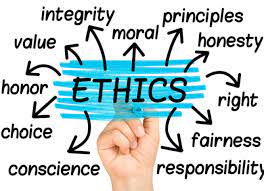Adam Marcus and Ivan Oransky
The Chronicle of Higher Education
Originally posted 18 AUG 23
Francesca Gino has made headlines twice since June: once when serious allegations of misconduct involving her work became public, and again when she filed a $25-million lawsuit against her accusers, including Harvard University, where she is a professor at the business school.
(cut)
Such cases can be extremely expensive — not only for the defense, whether the costs are borne by institutions or insurance companies, but also for the plaintiffs. Ask Carlo Croce and Mark Jacobson.
Croce, a cancer researcher at Ohio State University, has at various points sued The New York Times, a Purdue University biologist named David Sanders, and Ohio State. He has lost all of those cases, including on appeal. The suits against the Times and Sanders claimed that a front-page story in 2017 that quoted Sanders had defamed Croce. His suit against Ohio State alleged that he had been improperly removed as department chair.
Croce racked up some $2 million in legal bills — and was sued for nonpayment. A judge has now ordered Croce’s collection of old masters paintings to be seized and sold for the benefit of his lawyers, and has also garnished Croce’s bank accounts. Another judgment means that his lawyers may now foreclose on his house to recoup their costs. Ohio State has been garnishing his wages since March by about $15,600 each month, or about a quarter of his paycheck. He continues to earn more than $800,000 per year from the university, even after a professorship and the chair were taken away from him.
When two researchers published a critique of the work of Mark Jacobson, an energy researcher at Stanford University, in the Proceedings of the National Academy of Sciences, Jacobson sued them along with the journal’s publisher for $10 million. He dropped the case just months after filing it.
But thanks to a so-called anti-SLAPP statute, “designed to provide for early dismissal of meritless lawsuits filed against people for the exercise of First Amendment rights,” a judge has ordered Jacobson to pay $500,000 in legal fees to the defendants. Jacobson wants Stanford to pay those costs, and California’s labor commissioner said the university had to pay at least some of them because protecting his reputation was part of Jacobson’s job. The fate of those fees, and who will pay them, is up in the air, with Jacobson once again appealing the judgment against him.



